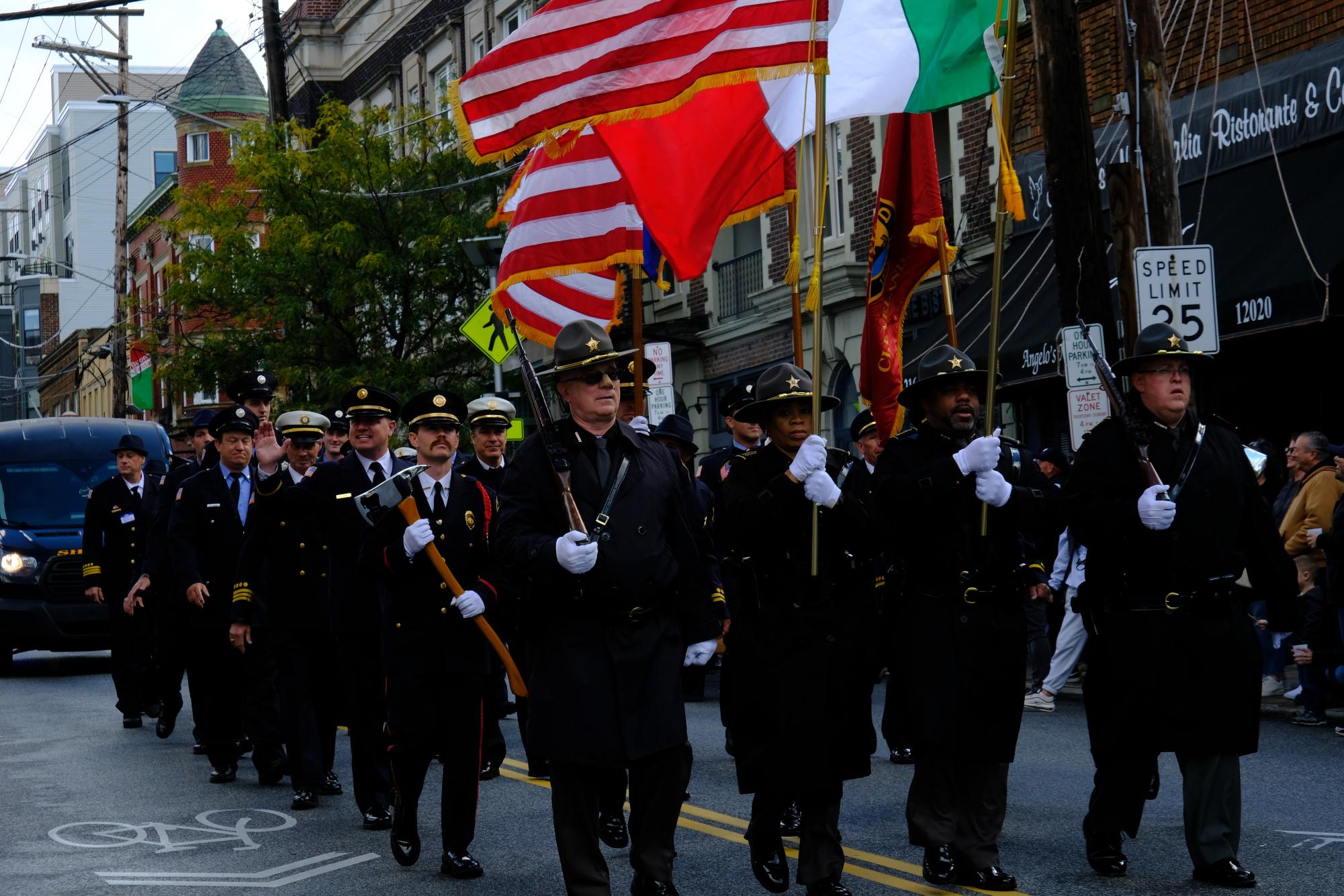On Oct. 14, 2024, Cleveland’s Little Italy neighborhood once again came alive with the annual Columbus Day Parade, a lively event celebrating Italian-American culture. Starting at noon, the parade traveled through closed-off streets in the heart of Little Italy, including Mayfield and Murray Hill Roads, attracting a large crowd of enthusiastic spectators. Organized by The Italian Sons and Daughters of America (ISDA), this tradition is a point of pride for Cleveland’s Italian-American community, though questions about its future have surfaced as public perceptions of Christopher Columbus continue to change.
For many in Cleveland’s Italian-American community, the parade is more than just an event—it’s a symbol of their immigrant history and contributions to the city. “It represents not only the history of our country but the history of the Italian-American immigrants in this country,” said an event organizer. “It’s important to celebrate all ethnicities in their original form. We are a nation of immigrants, and this is a day for the Italian-American community to be recognized.”
The parade featured colorful floats, cars adorned with Italian flags and festive displays from various Italian organizations. Local high school marching bands, police officers, firefighters and sheriffs marched proudly through the streets. Children eagerly awaited candy thrown from passing floats, while adults waved and cheered from sidewalks and porches wrapped in the vibrant colors of the Italian flag. The sense of community was clear as many residents greeted each other along the parade route.
Despite the festivities, conversations about Columbus’ legacy loom large. Across the country, calls for replacing Columbus Day with Indigenous Peoples’ Day have gained momentum, acknowledging the impact of European colonization on Native Americans. When asked about changing perceptions, the event organizer reflected, “I’ve noticed shifting views toward Columbus, but I haven’t seen much criticism of the parade itself.”
This reveals a delicate balancing act within the Little Italy community—upholding a tradition that celebrates their identity while acknowledging the complex history surrounding Columbus. The organizer further commented, “I believe the Indigenous Peoples should have their own day to celebrate, just as we do. Everybody deserves their own day.”
The parade—historically held in Downtown Cleveland—wasn’t originally focused on Christopher Columbus at all, according to one Italian-American attendee. “Columbus wasn’t really a central figure back then. It’s more about the culture,” he explained, reflecting on the parade’s shift over the years. He also expressed frustration with the political debates surrounding Columbus, stating, “They’ve turned it into a business, a politician thing. Back in 1978, people didn’t even know who Columbus was.” Despite this, the attendee emphasized that the parade is still a meaningful celebration of Italian-American heritage, regardless of the changing views on Columbus himself.
For the Italian-American community, the Columbus Day Parade remains an important way to honor their ancestors and contributions to Cleveland. But as the debate around Columbus intensifies, the parade may evolve in the years to come. For now, Cleveland continues to observe both Columbus Day and Indigenous Peoples’ Day on separate dates, allowing both celebrations to coexist.
As the conversation about Columbus’ legacy continues, the Columbus Day Parade remains a cherished tradition, serving as a reminder of the community’s roots. Whether or not the parade changes, it will likely continue to be a central part of Cleveland’s Italian-American identity, connecting past and present through celebration and reflection.


